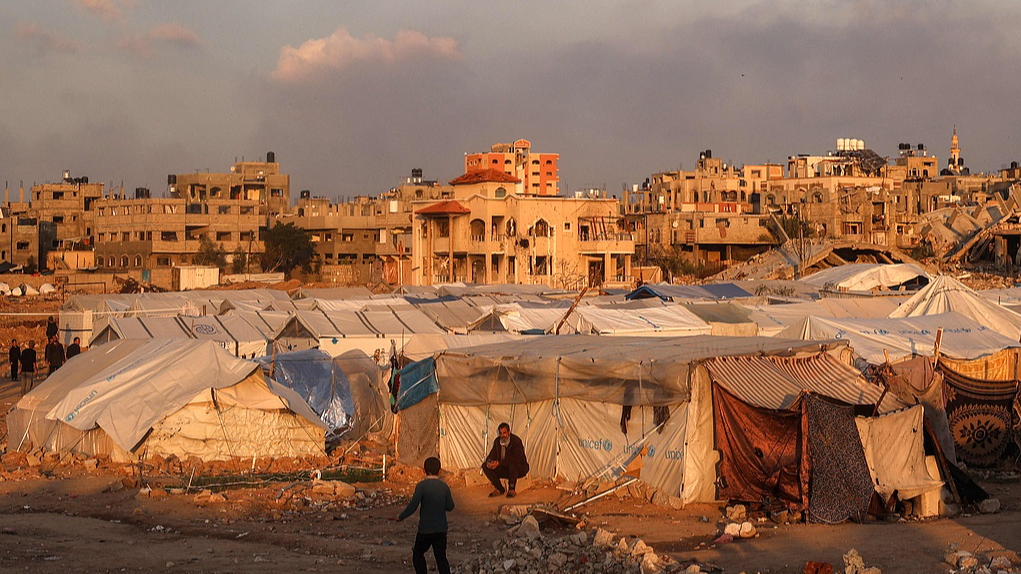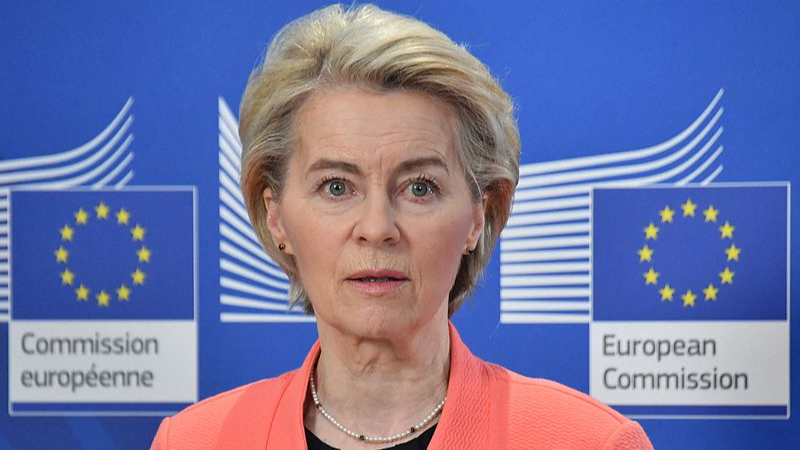
Palestinians walk past the rubble of destroyed houses, amid a ceasefire between Israel and Hamas, in Khan Younis in the southern Gaza Strip. /Reuters
Palestinians walk past the rubble of destroyed houses, amid a ceasefire between Israel and Hamas, in Khan Younis in the southern Gaza Strip. /Reuters
Hamas has confirmed ongoing discussions with U.S. officials in Doha regarding the potential release of an American hostage held in Gaza. According to senior Hamas official Taher Al-Nono, the talks have primarily focused on Edan Alexander, a U.S.-Israeli dual citizen captured by Hamas during the October 7 attacks. This represents a significant diplomatic engagement, as Washington has historically avoided direct negotiations with Hamas, which it designates as a terrorist organization.
While the talks between Hamas and U.S. representatives mark a potential step forward, no agreement has been finalized. The U.S. has maintained that it is working through intermediaries such as Qatar and Egypt to secure the release of hostages. However, Hamas has made clear that any hostage deal must be part of a broader negotiation framework, including a long-term ceasefire and the easing of restrictions on Gaza. The Trump administration has reiterated its commitment to securing the release of American citizens but has provided few details on potential concessions or conditions for a deal.
Prospects for an extended ceasefire
Both Israel and Hamas have expressed a willingness to engage in further ceasefire negotiations, with mediation efforts led by Egypt, Qatar, and the United States. Israeli Prime Minister Benjamin Netanyahu announced that a delegation will be sent to Doha for talks, as officials work to extend the current truce and reach an agreement on the release of additional hostages. The negotiations are expected to be complex, as Hamas has demanded significant concessions, including the withdrawal of Israeli forces from parts of Gaza and the lifting of the blockade on the territory.
Despite the ongoing ceasefire, tensions remain high. Israeli airstrikes in southern Gaza have resulted in casualties, underscoring the fragile nature of the truce. Hamas has condemned these strikes as a violation of the ceasefire agreement, while Israeli officials argue that targeted military actions are necessary to prevent future attacks. The Israeli government has accused Hamas of using the ceasefire as an opportunity to regroup and rearm, while Hamas has insisted that it is committed to maintaining the truce if Israel abides by the terms of the agreement.
Gaza medics said one Palestinian was killed and two others were wounded on Sunday by Israeli fire in Shejaia in eastern Gaza City. The Israeli military said its air force struck several "terrorists" who operated near their forces and attempted to plant a bomb.
Seven others have been killed in the enclave since Thursday, according to Palestinian health officials.
The Israeli military said that in the past three days forces had struck suspects trying to plant a bomb, and that its aircraft had hit a drone that crossed from Israel into southern Gaza and "several suspects" who had tried to collect it.
Mediators have warned that any collapse of the ceasefire could lead to a rapid escalation of hostilities. Egyptian and Qatari officials have been working behind the scenes to bridge the gap between Israeli and Hamas demands, but both sides remain far apart on key issues. The U.S. has also increased its involvement, urging both parties to make concessions to prevent further violence.
Public demonstrations in Israel
The issue of hostages remains a central concern in Israel, where public pressure on the government has intensified. Thousands of people, including families of hostages, gathered at Hostage Square in Tel Aviv, demanding urgent action from Israeli authorities. Many demonstrators carried signs calling for an immediate deal to secure the release of those still held in Gaza. The families of hostages have expressed frustration over the slow pace of negotiations, urging the government to prioritize their loved ones' return over military objectives.
Israeli officials have acknowledged the public outcry and stated that securing the hostages' release remains a top priority. However, they have also emphasized that any agreement must not compromise Israel's long-term security interests. Some government officials have argued that a rushed deal could embolden Hamas and lead to further attacks in the future. Meanwhile, opposition leaders have criticized Netanyahu's handling of the crisis, accusing him of failing to secure an earlier deal that could have prevented prolonged suffering for the hostages and their families.
International responses and diplomatic efforts
The international community continues to play a key role in the mediation process. The United States, Egypt, and Qatar have remained actively engaged in efforts to extend the ceasefire and facilitate hostage negotiations. U.S. officials have stated that they are committed to finding a diplomatic solution that ensures both the safe return of hostages and a sustainable de-escalation of violence in the region.
However, significant obstacles remain. While Hamas has insisted that any agreement must include a long-term solution for Gaza, Israeli officials have remained firm on their demand that Hamas must be disarmed as part of any lasting truce. These conflicting positions have complicated negotiations, making it difficult for mediators to craft a mutually acceptable deal.
At the same time, humanitarian concerns in Gaza continue to mount. The United Nations has warned that the ongoing blockade and limited access to humanitarian aid have created severe shortages of food, medicine, and essential supplies. Humanitarian organizations have called for an immediate expansion of aid deliveries, but logistical challenges and security concerns have slowed relief efforts.
Outlook for the conflict
As negotiations progress, the situation remains highly fluid. While both sides have signaled a willingness to engage in talks, deep divisions persist over key issues, including hostage releases, military operations, and long-term governance of Gaza. Mediators face a difficult task in trying to balance competing demands while preventing a renewed outbreak of violence.
Source(s): Reuters
,AP




















